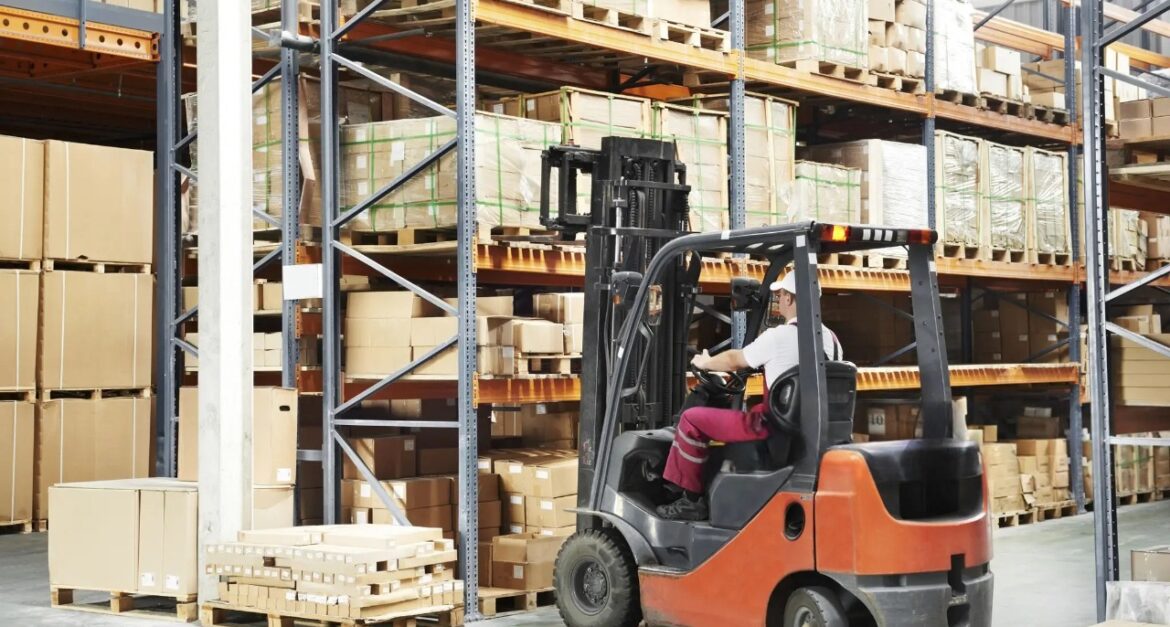
Introduction: The Engine of Saudi Arabia’s Growth
Do you import construction machinery or industrial engines to Saudi Arabia and do not know the appropriate Hs code or compliance regulations? You are not the only one, lots of importers have to spend time waiting at the customs, paying fines or re-importing their goods just because of the incorrect classification or lack of SABER certificates.
But here’s the solution — with the right HS Code knowledge and a trusted logistics partner like Palm Horizon KSA, you can simplify the import process, ensure conformity, and move your machinery smoothly through Saudi ports.
This guide covers everything — from HS Code mapping and SABER requirements to import duties, logistics challenges, and industry insights shaping the future of Saudi Arabia’s machinery sector.
What Are HS Codes for Machinery & Spare Parts?
The HS Codes (Harmonised system Codes) are global identifiers of traded goods where, customs use to figure out importation duties, compliance regulations, and limitations.
In the case of machinery and spare parts, such codes prove to be particularly important as:
- They define whether SABER or energy efficiency conformity is needed.
- They determine customs duties (which differ for new vs used machinery).
- They influence clearance time and risk of inspection.
Saudi Arabia follows the GCC Common Customs Tariff, based on the WCO Harmonized System (HS). Each code has six digits internationally, but Saudi Customs often extends to eight digits for local classification.
Core Machinery HS Codes in Saudi Arabia (Updated for 2025)
Below is an extensive, updated list of common machinery and spare parts HS Codes frequently imported into Saudi Arabia for construction, manufacturing, and industrial use:
| Category | Product | HS Code | Notes |
| Construction Equipment | Bulldozers | 8429.11.00 | Requires SABER certificate, sometimes G-Mark |
| Excavators | 8429.52.00 | Conformity required for hydraulic systems | |
| Loaders | 8429.51.00 | Duty based on capacity | |
| Road Rollers | 8429.40.00 | Classified under earthmoving machinery | |
| Engines & Power Units | Diesel Engines | 8408.90.00 | May require Energy Efficiency Label |
| Gasoline Engines | 8407.90.00 | For generators and small machinery | |
| Electric Motors | 8501.10.00 | Covered under SASO energy efficiency scheme | |
| Generators & Power Systems | Portable Generators | 8502.11.00 | Requires SABER, noise & emission standards |
| Industrial Generators | 8502.39.00 | Duty varies by power output | |
| Machinery Parts | Pumps for liquids | 8413.81.00 | Must include technical datasheet |
| Hydraulic Cylinders | 8412.21.00 | Important for mobile equipment imports | |
| Air Compressors | 8414.80.00 | Safety testing under SASO standards | |
| Spare Parts & Components | Machine Gears | 8483.40.00 | Often imported for repair operations |
| Bearings | 8482.10.00 | No SABER required, but must meet ISO spec | |
| Filters & Oil Separators | 8421.23.00 | Required for engine systems | |
| Industrial Valves | 8481.80.00 | Requires SABER approval | |
| Agricultural & Industrial | Harvesting Machinery | 8433.20.00 | Conformity for mechanical safety |
| Food Processing Machines | 8438.80.00 | Requires hygiene compliance | |
| Textile Machinery | 8445.11.00 | Industrial sector imports |
These HS Codes represent over 70% of Saudi Arabia’s total machinery imports in 2024–2025, according to ZATCA trade data.
SABER Conformity & Compliance Requirements
In Saudi Arabia, every imported mechanical product must comply with SASO/SABER regulations to ensure safety, performance, and energy efficiency.
Key SABER Rules for Machinery:
- Mandatory Product Registration:
Importers must register products in the SABER platform and obtain a Product Certificate of Conformity (PCoC). - Technical File Submission:
Includes product description, safety certificates, energy efficiency test reports (for engines), and photos. - Energy Efficiency Labels:
Required for engines, electric motors, and power-generating units above certain thresholds. - Used Machinery:
- Must pass inspection at origin (ISO/IEC compliance).
- Higher customs duty (up to 15%) compared to new machinery.
- Must pass inspection at origin (ISO/IEC compliance).
- Exemptions:
Spare parts, bearings, and simple mechanical components may be exempt from full SABER testing but still require documentation.
Why HS Codes Matter More Than Ever in 2025
1. Customs Efficiency
Correct HS Codes speed up ZATCA clearance and reduce inspection delays.
2. Accurate Duty Calculation
Different codes mean different tariff rates — one error can change your duty liability significantly.
3. Compliance and Legal Safety
Incorrect HS classification can lead to fines, re-export orders, or blacklisting under SASO regulations.
4. Logistics Optimization
By understanding HS classifications, logistics providers like Palm Horizon KSA can pre-clear documentation and shorten transit times by days.
Palm Horizon KSA: Your Logistics Partner for Machinery Imports
As one of the top logistics companies in Saudi Arabia, Palm Horizon KSA specializes in end-to-end logistics solutions for industrial, construction, and power sector equipment.
🌐 Services Include:
- Customs Clearance & HS Code Advisory
- SABER Certification Management
- Heavy Equipment Transportation
- Project Cargo & Oversized Load Handling
- Warehousing & Distribution
- Import/Export Documentation
Whether you’re importing a diesel generator or a complete batch of construction machines, Palm Horizon ensures your cargo meets all regulatory and transport requirements.
🚀 Why Choose Palm Horizon:
- Expertise in industrial-grade logistics
- Partnership with SASO-approved inspection agencies
- Proven track record in Vision 2030 infrastructure projects
- Integrated support for energy, oil & gas, and construction sectors
Real-World Use Cases and Industry Applications
1. Construction & Infrastructure
Excavators, loaders, cranes, and rollers — used in NEOM, Qiddiya, and Red Sea projects — form a huge part of the machinery import stream.
2. Energy & Power Generation
Generators and turbines imported for renewable energy projects (solar and wind) are subject to energy labeling and emission standards.
3. Manufacturing & Automation
Industrial machines for food, packaging, and textiles are entering Saudi Arabia to meet domestic production targets under Vision 2030.
4. Oil & Gas Sector
Specialized compressors, pumps, and drilling engines — often shipped via project cargo logistics managed by Palm Horizon KSA.
5. Agriculture
Modernized harvesting, irrigation, and feed-processing equipment have HS Codes under 8432–8438.
🧰 Importing Used Machinery: What You Must Know
Saudi Arabia allows used machinery imports — but under strict conditions.
Key Rules:
- Must be less than 10 years old (depending on type).
- Requires inspection report from origin country.
- Must comply with Saudi technical regulations.
- Higher duty rates (10–15%) than new equipment.
Palm Horizon assists in pre-inspection, document verification, and customs clearance for used imports — minimizing risk and ensuring full compliance.
Comparison: Machinery Imports vs. Regional Competitors
| Country | Avg. Duty | SABER Requirement | Used Machinery Policy | Customs Clearance Speed |
| Saudi Arabia | 5–15% | Mandatory | Allowed with inspection | Fast with SABER |
| UAE | 5% | Optional for some items | Allowed | Faster due to free zones |
| Qatar | 5–10% | Mandatory | Restricted | Moderate |
| Oman | 5% | Mandatory | Allowed | Moderate |
| Bahrain | 5% | Optional | Allowed | Fast |
Saudi Arabia stands out for its strict SABER enforcement, ensuring higher-quality imports and safer operation standards.
Implementation: How to Classify and Import Machinery Step-by-Step
- Identify Product Specifications
Include model, type, material, and function. - Search the Correct HS Code
Using ZATCA’s Customs Tariff or WCO database. - Check SABER Requirements
Identify whether the product falls under SASO technical regulations. - Apply for Product and Shipment CoCs
Through SABER or authorized conformity bodies. - Work with an Experienced Logistics Partner
Palm Horizon KSA handles all steps from documentation to final delivery.
Frequently Asked Questions (FAQs)
What are HS Code of construction machinery in Saudi Arabia?
Chapter 84 and 85 of the Saudi Customs Tariff are the major Hs Codes. Examples are 8429.52.00 regarding excavators, 8429.11.00 regarding bulldozers and 8429.40.00 regarding road rollers. The codes play an important role in dictating the responsibilities, SABER compliance, and inspection at Saudi ports.
Are all the imports of machinery subject to SABER certification?
Yes – almost all kinds of mechanical and electrical equipment have to be registered on SABER platform, according to Saudi Standards, Metrology and Quality Organization (SASO). Simple spare parts (bolts, nuts, or washers) can only be excepted in case they are parts of a certified product.
How much is the importation duty on used machinery in KSA?
The used machinery will normally come with a price of between 10-15 per cent depending on the type of machines, their ages, and the state of their inspections. The practices can also place extra tests in order to validate the adherence of the machinery to Saudi technical and safety standards.
Is it possible to import second hand generators in Saudi Arabia?
Yes, importation of second-hand generators is permissible although under certain conditions of energy efficiency, emission and performance. An inspection certificate issued in the home country must also be provided by the importers in order to be assured that the standards of SASO or ISO are met.
What is the way in which Palm Horizon can assist in importing machinery?
Palm Horizon KSA offers both inward and outward logistics services to machinery importers such as customs clearance services, SABER documents, transporting of heavy equipment, and warehousing services. Their team of specialists provides quicker clearance, complete compliance and secure management of oversized and valuable machinery.
Conclusion: Powering Saudi Arabia’s Machinery Future
Saudi Arabia’s machinery market is surging — fueled by Vision 2030, industrial expansion, and infrastructure megaprojects. But success in this sector demands precision, compliance, and a trusted logistics partner.
With a deep understanding of HS Codes, SABER conformity, and customs protocols, Palm Horizon KSA ensures your machinery and spare parts move seamlessly from port to project.
Whether it’s construction equipment, industrial engines, or power generation units, Palm Horizon empowers your business to stay compliant, cost-efficient, and always ahead of the curve.





